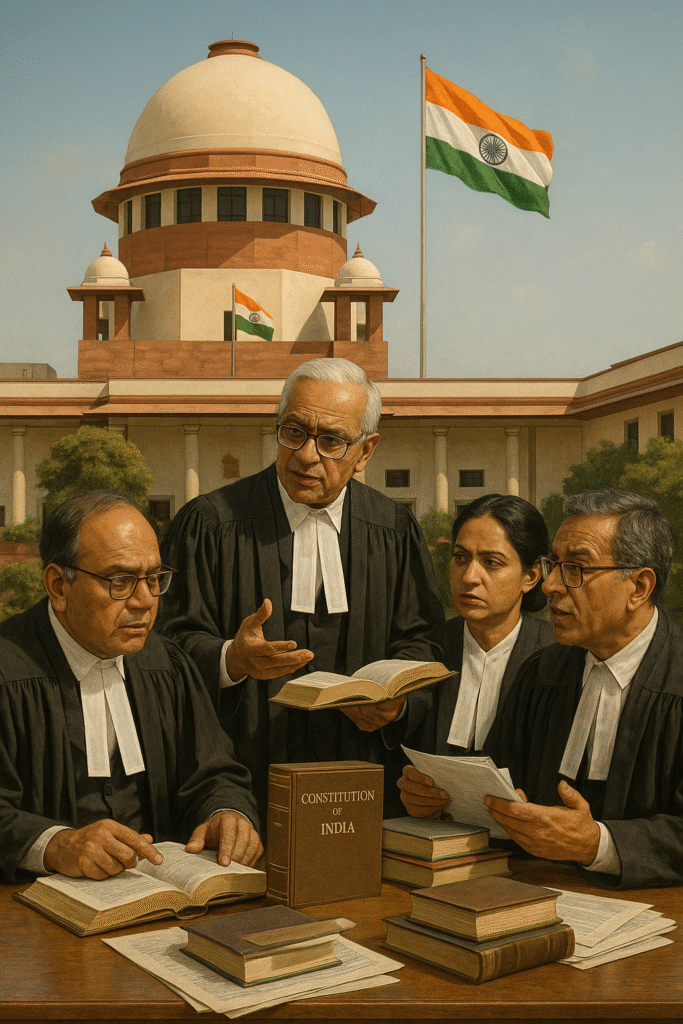
In a landmark judgment, the Supreme Court of India has ruled that Governors cannot stall bills indefinitely after they are passed by state legislatures. The verdict strengthens legislative supremacy and reaffirms the principles of federalism and constitutional morality in India
Background of the Case
- Article 200 of the Indian Constitution allows Governors to assent, withhold assent, return bills (if not money bills), or reserve them for the President.
- Several state governments complained that Governors were delaying assent to bills, creating a constitutional deadlock.
- The Court was approached to examine whether such indefinite delays violate the constitutional framework.
Supreme Court’s Key Observations
- No Indefinite Delay: Governors cannot sit on bills endlessly, as it undermines the democratic process.
- Time-bound Action: The Governor must act within a reasonable time in accordance with constitutional conventions.
- Federal Spirit: The Governor is a constitutional head, not an independent authority, and must respect the aid and advice of the Council of Ministers.
- Judicial Scrutiny: Courts can intervene in cases of constitutional non-compliance by Governors.
Significance of the Verdict
- Strengthens Democracy: Prevents the misuse of the Governor’s office as a political tool.
- Checks Arbitrary Power: Ensures Governors remain neutral constitutional figures.
- Promotes Cooperative Federalism: Balances Centre-State relations by limiting central interference.
- Protects Legislative Will: Upholds the supremacy of the elected legislature over nominated heads.
Relevance for UPSC Aspirants
- Prelims: Questions may focus on Article 200, Governor’s powers, SC judgments.
- Mains (GS II): Useful in answers on Centre-State relations, constitutional checks and balances, and role of Governors.
- Essay Paper: Can be used in themes like Federalism in India and Challenges of Constitutional Morality.
Practice Questions
Prelims (MCQ)
Which of the following powers of the Governor are mentioned under Article 200 of the Constitution?
- Assenting to the bill
- Withholding assent
- Returning a bill (other than money bill)
- Dissolving the Legislative Assembly
(a) 1, 2 and 3 only
(b) 1 and 4 only
(c) 2, 3 and 4 only
(d) 1, 2, 3 and 4
✅ Answer: (a) 1, 2 and 3 only
Mains (GS II)
Q. The recent Supreme Court ruling on Governors not stalling bills indefinitely highlights the need to revisit the role of Governors in India’s federal framework. Discuss. (150 words)
Conclusion
The Supreme Court’s ruling marks a defining moment in India’s constitutional history. By clarifying that Governors cannot indefinitely delay bills, the Court has safeguarded the democratic process, strengthened legislative supremacy, and reinforced the spirit of cooperative federalism. This judgment ensures that constitutional posts remain neutral and continue to function within their defined boundaries.

0 responses on "Supreme Court Rules Governors Cannot Stall Bills Indefinitely."